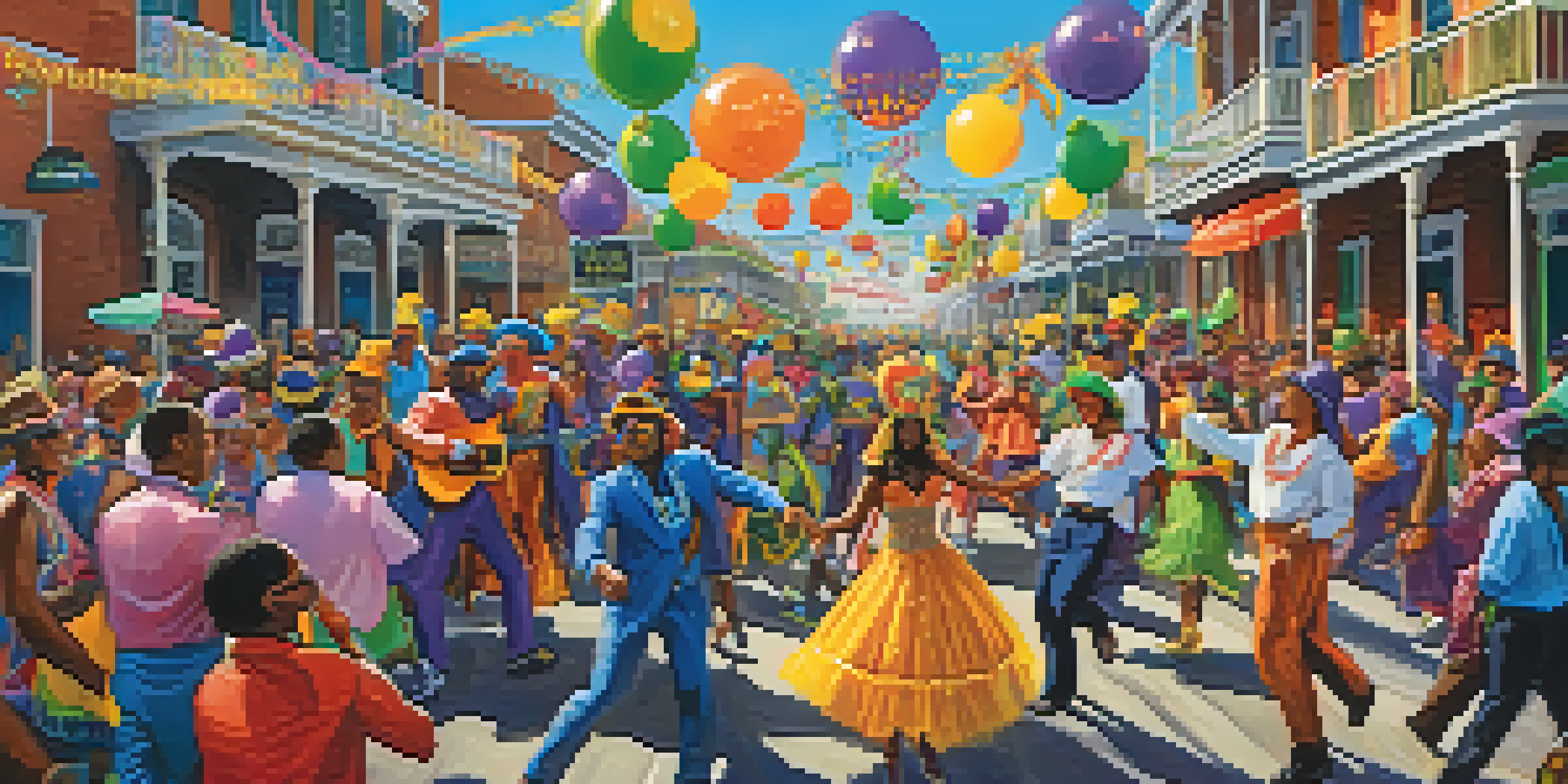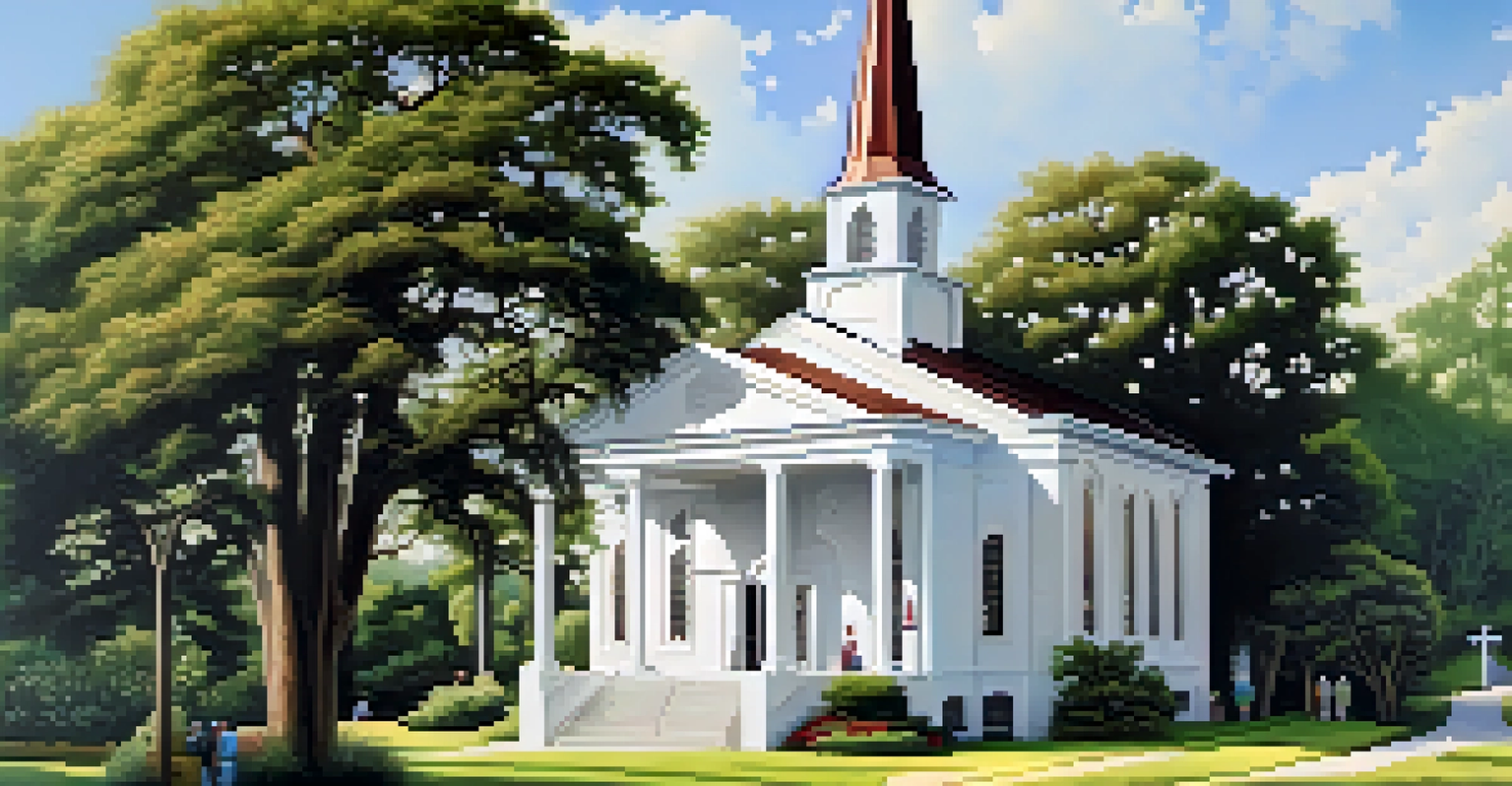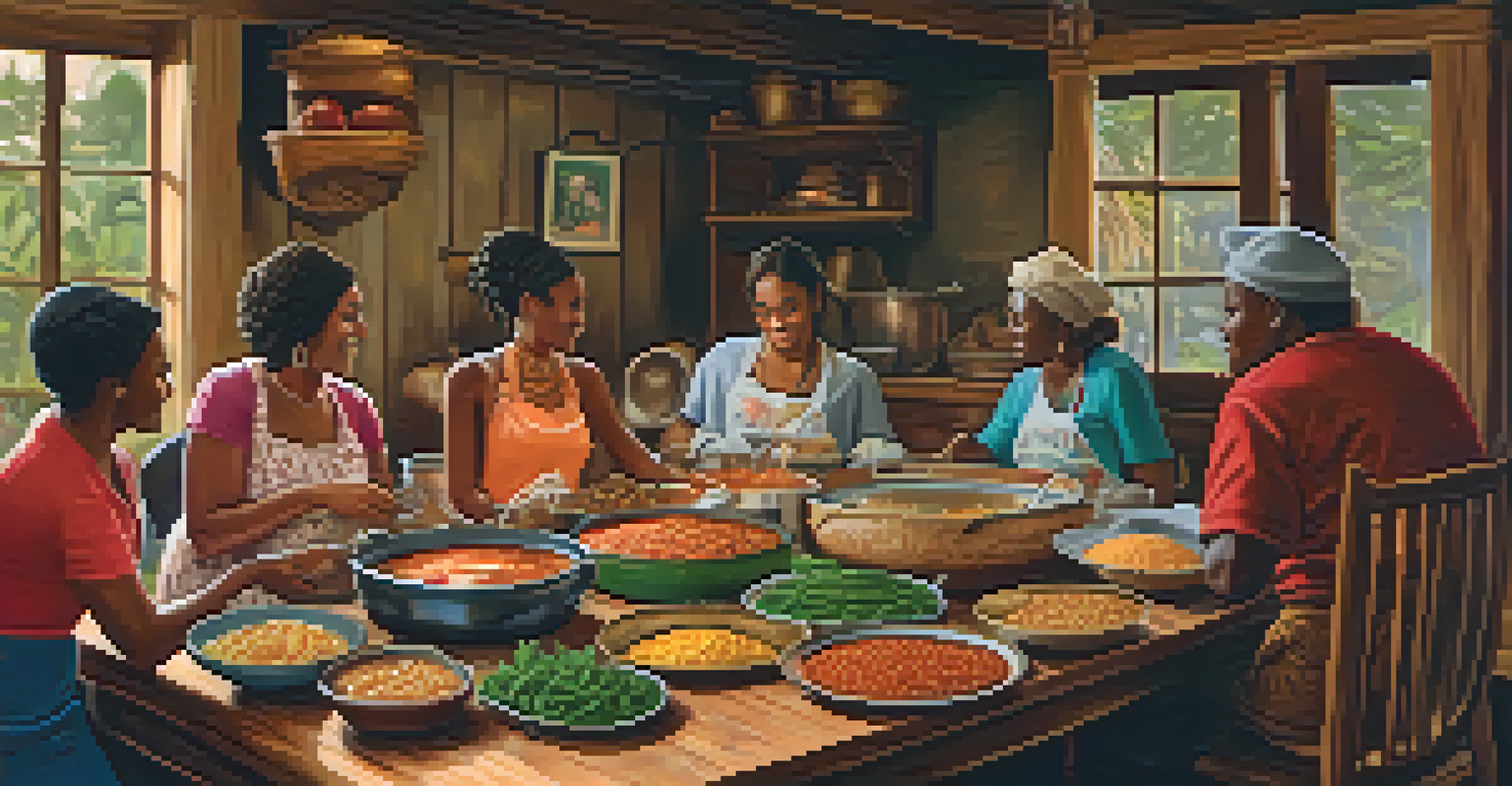The Role of Religion in Cajun and Creole Communities

Introduction to Cajun and Creole Cultures
Cajun and Creole cultures are rich tapestries woven from various influences, primarily French, African, Spanish, and Native American. Each thread contributes to their unique identity, which is deeply intertwined with the region's history and environment, particularly in Louisiana. Understanding these cultures requires an appreciation of how religion plays a significant role in shaping their values, traditions, and social interactions.
Religion is not just a set of beliefs, but a way of life that informs daily practices and communal gatherings.
Religion in these communities isn’t just about beliefs but is also a way of life that informs daily practices and communal gatherings. From the vibrant celebrations of Mardi Gras to the solemnity of All Saints' Day, religious observances often blend with cultural festivities. This intertwining creates a unique experience that reflects both faith and heritage, making religion a cornerstone of Cajun and Creole identity.
As we explore this topic further, we’ll uncover how religion influences everything from family dynamics to culinary traditions, painting a vivid picture of its importance in Cajun and Creole life. By examining specific practices and beliefs, we can see how deeply embedded religion is in the fabric of these communities.
Historical Context of Religion in Louisiana
The history of religion in Louisiana is as diverse as its population. When French settlers arrived, they brought Catholicism, which became the predominant faith in Cajun communities. However, the arrival of enslaved Africans introduced various spiritual practices, including Vodou and other African religions, creating a rich religious landscape that still exists today.

Creole communities, often more urban and diverse, also adopted Catholicism but frequently incorporated elements from African and Caribbean religions. This blending of faiths led to a unique spiritual expression that is both distinct and inclusive. The historical interactions among different cultures have shaped the religious practices we see in Cajun and Creole communities today.
Religion Shapes Cajun and Creole Life
Religion is deeply embedded in Cajun and Creole cultures, influencing their traditions, social interactions, and sense of community.
Understanding this historical context is crucial in appreciating how religion continues to evolve within these communities. It highlights the resilience and adaptability of their beliefs, which have been influenced by centuries of cultural exchange, conflict, and cooperation.
The Catholic Church's Influence
Catholicism holds a central place in both Cajun and Creole cultures, acting as a unifying force for families and communities. The church not only provides spiritual guidance but also serves as a social hub where traditions are preserved and passed down through generations. Events such as baptisms, weddings, and funerals often reflect the deep-rooted customs associated with the Catholic faith.
The traditions and beliefs rooted in religion provide a sense of stability and continuity.
Moreover, the church plays a vital role in community outreach and support, offering social services and fostering a sense of belonging among its members. This connection is especially important in rural areas, where the church can be the heart of the community. The shared faith reinforces relationships and encourages collective participation in cultural events.
As we examine specific rituals and celebrations, it becomes clear that Catholicism is more than just a religion here; it’s a vital part of the Cajun and Creole identity. The values and teachings of the church resonate through family life, community events, and even local cuisine, showcasing how faith and culture are intertwined.
Spiritual Practices and Beliefs
In addition to Catholicism, Cajun and Creole communities practice a variety of spiritual traditions that reflect their unique heritage. These include folk beliefs, rituals, and customs that have been passed down through generations. For instance, practices like 'laissez les bon temps rouler' during Mardi Gras embody the spirit of celebration and community bonding rooted in religious tradition.
Vodou, often misunderstood, is another significant spiritual practice within the Creole community. It emphasizes the connection between the living and the spirits of ancestors, fostering a sense of continuity and belonging. This blend of Catholic and African beliefs creates a rich spiritual tapestry that is both unique and meaningful.
Festivals Blend Faith and Culture
Cajun and Creole festivals like Mardi Gras and All Saints' Day merge religious significance with vibrant cultural expression, reinforcing community bonds.
These spiritual practices are not just rituals; they are expressions of identity and resilience. They provide a sense of comfort and belonging, especially during challenging times, illustrating how deeply rooted spirituality is in everyday life for Cajun and Creole people.
Festivals and Religious Celebrations
Festivals play a significant role in Cajun and Creole communities, often merging religious significance with cultural expression. Events like Mardi Gras and All Saints' Day showcase this blend, as they are marked by vibrant parades, music, and food, all rooted in religious traditions. These celebrations are a means of honoring faith while also embracing cultural identity, inviting everyone to participate.
The communal aspect of these festivals fosters social cohesion, bringing families and friends together to celebrate shared beliefs and heritage. They serve as reminders of the rich history and traditions that bind the community together, creating a sense of belonging and pride. Through music, dance, and food, these events highlight the importance of faith in everyday life.
As we delve into the specifics of these festivals, it becomes evident that they are more than just celebrations; they are acts of cultural preservation and collective memory. They reflect the ongoing dialogue between religion and culture, showcasing how inseparable these elements are in Cajun and Creole life.
Religious Institutions and Community Support
Religious institutions in Cajun and Creole communities are vital for providing support and fostering a sense of belonging. Churches and spiritual centers often act as community hubs, offering various programs and services that cater to the needs of their members. From food drives to educational programs, these institutions play a crucial role in uplifting the community.
In addition to spiritual guidance, they also serve as a platform for cultural expression. Many churches host events that celebrate Cajun and Creole heritage, reinforcing the idea that faith and culture are interconnected. This support system helps to strengthen community ties and ensures that cultural traditions continue to thrive.
Churches Serve as Community Hubs
Religious institutions in these communities provide vital support and foster a sense of belonging, acting as centers for cultural expression and social services.
The importance of these institutions cannot be overstated, as they provide not only a place for worship but also a network of support that is essential in times of need. They epitomize the communal spirit that defines Cajun and Creole life, illustrating how religion serves as a foundation for community resilience.
Conclusion: The Enduring Legacy of Religion
The role of religion in Cajun and Creole communities is a testament to the enduring power of faith and culture. It shapes their identities, influences social dynamics, and fosters a sense of belonging that is vital for community cohesion. As these communities continue to evolve, their religious practices remain a central aspect of their way of life.
In a world that is ever-changing, the traditions and beliefs rooted in religion provide a sense of stability and continuity. They remind us of the importance of heritage and the ways in which it can shape our lives and communities. The legacy of religion in Cajun and Creole cultures is not just about the past; it continues to influence the present and future.

Ultimately, understanding the role of religion in these communities offers valuable insights into their resilience and adaptability. It highlights the beauty of blending faith with culture, creating a rich and vibrant identity that is uniquely Cajun and Creole.